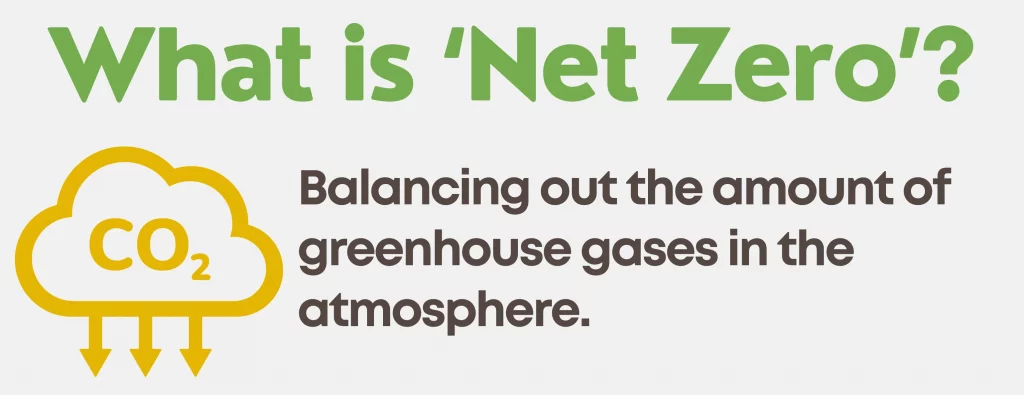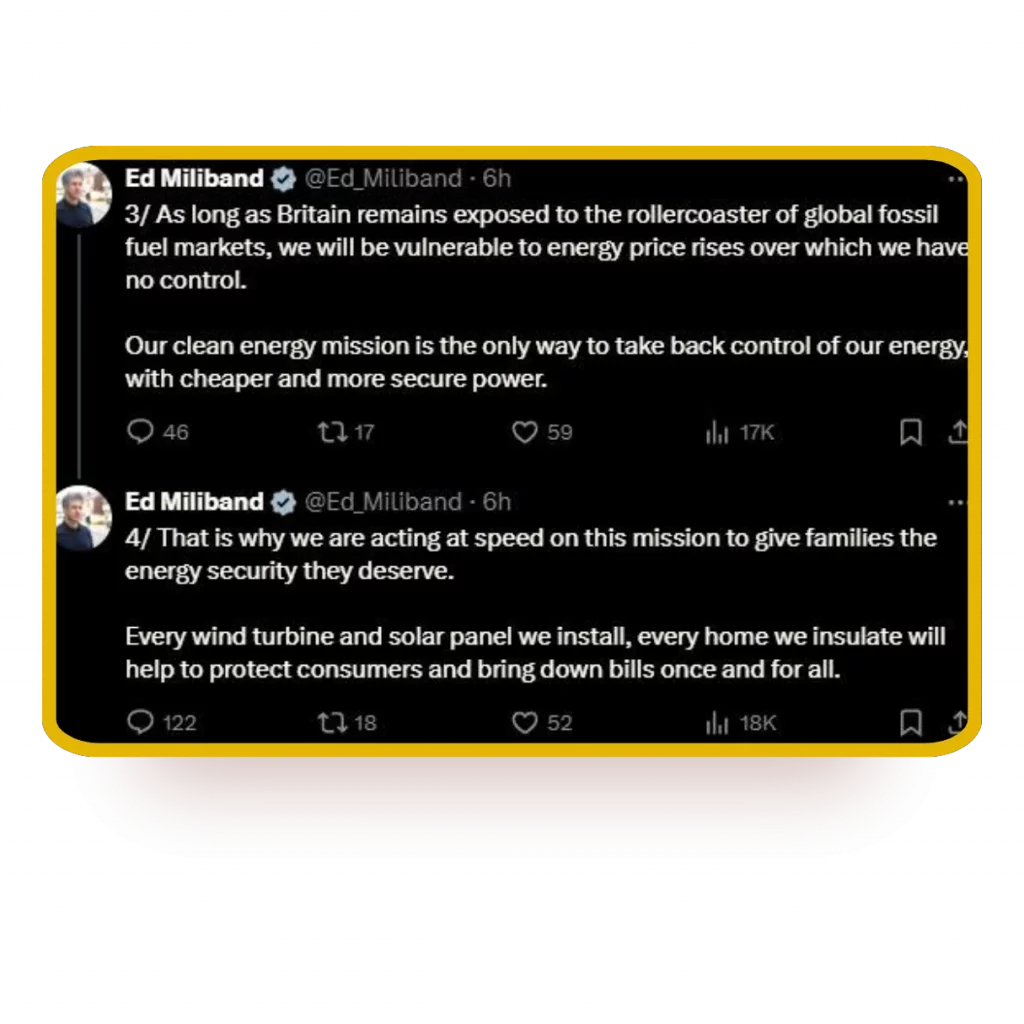
The 2024 United Nations Climate Change Conference, better known as COP29, took place in Baku, Azerbaijan, from November 11 to November 22, 2024. Dubbed the Finance COP, this conference brought together representatives from nearly 200 countries to set a new global financial target aimed at mitigating climate change effects. This new target will replace the 2009 commitment where developed nations pledged $100 billion annually by 2020 to assist developing countries in reducing emissions and building climate resilience.
The new financial goal aims to further support the 2015 Paris Climate Agreement, which seeks to cap global temperature rise at 1.5°C this century. The agreement set a roadmap for transitioning away from fossil fuels and tripling renewable energy capacity by 2030. These commitments align with many national goals, including the UK’s ambition to achieve ‘Net Zero’ emissions.

UK Leadership in Climate Action
The UK has played a leading role at COP29, exemplifying proactive climate policy. On November 12, Prime Minister, Keir Starmer announced the UK’s updated Nationally Determined Contribution (NDC) – a year ahead of the original deadline. Initially, countries were expected to submit their NDCs by February 2025, but this was extended to November 2025 when representatives stated they would not be able to announce their decisions by this date.
Alongside the UK, Brazil and the United Arab Emirates also submitted their NDCs ahead of schedule. Notably, Bhutan, Madagascar, Panama, and Suriname, collectively known as the GZERO countries, have already achieved net-zero greenhouse gas emissions.
Starmer revealed a new climate target to reduce emissions by 81% by 2035 compared to 1990 levels, alongside initiatives to support nature restoration. The previous NDC aimed for a 68% reduction by 2030. The UK government is determined to “maximise finance mobilisation from all possible sources.”
Energy Secretary, Ed Miliband, said the UK’s pledge to cut domestic emissions had put ‘Britain back on the map of global climate leadership’, and emphasised that the green transition was right both “ethically” and “economically”.


Forest Protection Funding
Throughout the conference, the UK has been at the forefront of discussions, striving for a strong outcome. With £11.6 billion pledged to be delivered in carbon finance by 2026, and £1.5 billion specifically allocated for protecting and restoring forests.
An additional £239 million has been pledged to support forest-rich nations, like Colombia and Indonesia, in their climate change efforts. Miliband highlighted the critical role of forests as “carbon sinks,” which absorb significant amounts of carbon from the atmosphere. Tropical forests, which house two-thirds of the world’s biodiversity and 80% of global terrestrial biodiversity, are particularly vital.
Miliband also remarked, “The climate crisis has no borders and these issues impact people back home in the UK – we’re already seeing the damage flooding and record heatwaves can do to businesses and the most vulnerable in our communities.”

Ocean Conservation Initiatives
In addition to forest protection, the UK announced funding towards 20 new projects in Round One of the Ocean Community Empowerment and Nature (OCEAN) Grants Programme. These initiatives aim to create lasting positive impacts on marine environments and coastal communities worldwide. The projects focus on reducing poverty, empowering local communities, and safeguarding marine ecosystems.
Ruth Davis, the UK’s first Special Representative for Nature, accompanied Nature Minister Mary Creagh to COP29 to ensure that nature remains central in climate discussions. Creagh stated, “With half the global economy dependent on nature, we need to save nature not only for its own intrinsic value but to save ourselves.”
She further emphasised, “The ocean is suffering the triple threat of global warming, pollution, and acidification, which risks the collapse of marine and coastal ecosystems. With more than 3 billion people directly dependent on the ocean, it is critical we take action. These important projects will help protect marine habitats in some of the most climate-vulnerable places on Earth.”


Controversies and Criticisms
Despite COP29’s climate goals, its location in a petrostate sparked criticism. Azerbaijan, instead of committing to reducing fossil fuel use, plans to increase it, leading some to question the conference’s integrity. This marks the second consecutive year a COP has been held in a country with conflicting interests. Environmental activist, Greta Thunberg, announced her boycott of COP29, condemning the choice of host nation for profiting from fossil fuels.
Some representatives in attendance believe that the COP process is “broken”, and that no deal at the end of the conference is far better than accepting a weak deal, which would not make substantial progress for the climate crisis.
During the first week of the conference, an open letter from former UNFCCC delegates was published. The letter outlined concerns about the inefficiency of the COP process and proposed changes to eligibility criteria for hosting. It advocated for “smaller, solution-focused meetings where countries are held accountable based on scientific data.” The letter also criticized the inclusion of fossil fuel lobbyists gaining access to the conference, 1,773 were noted to be in attendance this year. The former delegates urged instead for greater representation from “scientific institutions, Indigenous communities, and vulnerable nations”.
Conclusion: Progress Amid Controversy
On the final day of COP29, a flurry of new texts was released, including the latest draft negotiation texts (Version 22/11/2024 13:30). These documents reaffirm the commitment to the Paris Climate Agreement and introduce a significant new global financial target of $250 billion (£199 billion) per year by 2035. This ambitious funding aims to help developing countries combat climate change, signaling a major step forward in international climate finance.
However, the absence of certain critical commitments from last year’s agreements has cast a shadow over these achievements. Mentions of the pivotal decision to “transition away from fossil fuels” were omitted. Instead, the text references only “paragraph 28” of last year’s decision, which had outlined the fossil fuel transition. Additionally, the pledge to reverse deforestation by 2030, a cornerstone of previous climate agreements, was also conspicuously absent. There is still time for this to amended, and it is certain many representatives from different countries will be fighting exactly this.
While COP29 has achieved significant progress in setting financial targets and fostering collaboration, these omissions underscore ongoing challenges in achieving global consensus on critical climate issues. The outcomes of COP29 highlight the need for stronger international accountability and sustained effort to ensure that promises made at the negotiating table translate into meaningful action for the planet’s future.

